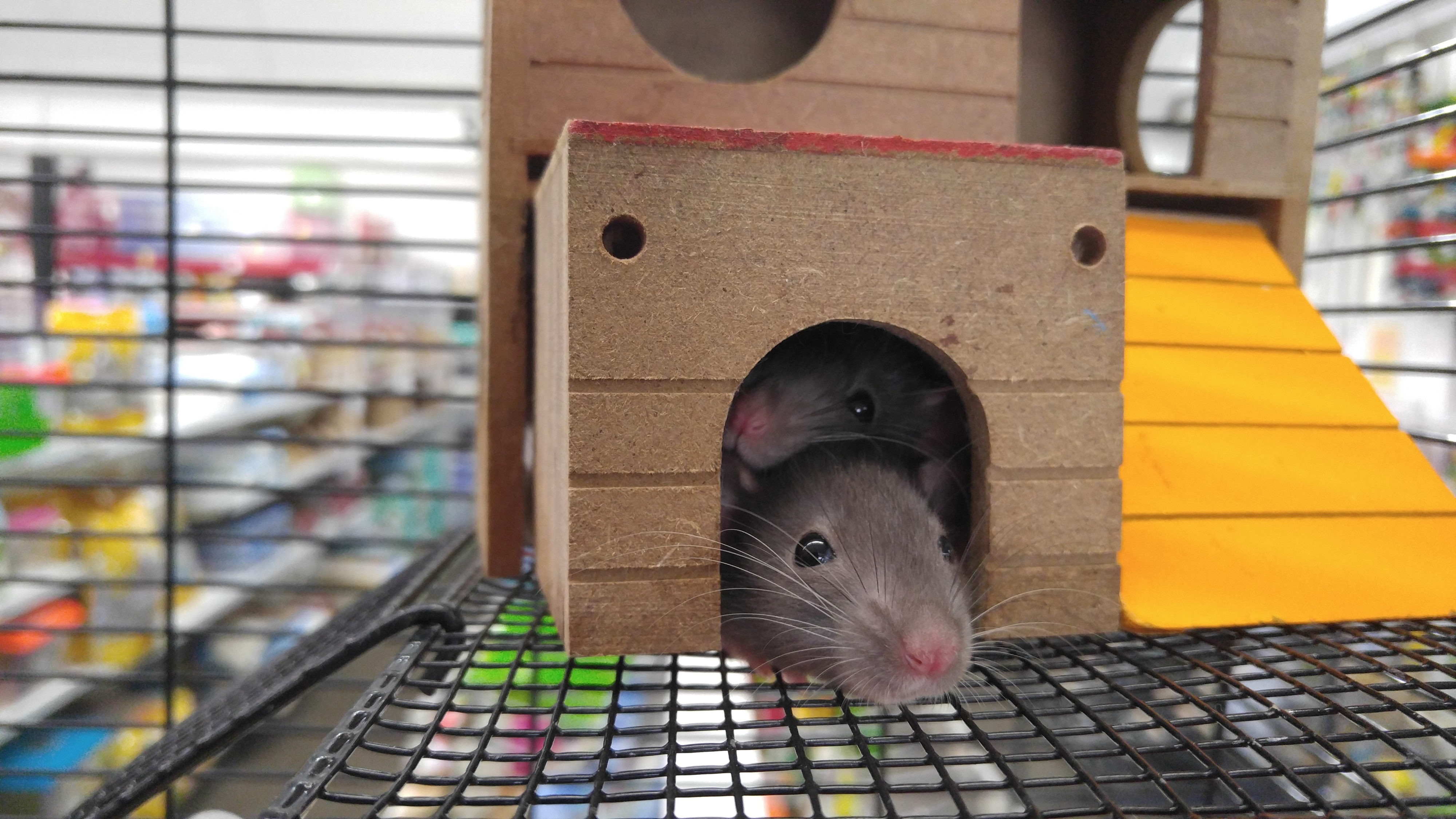|

Mice make great pets! They are social, intelligent, don’t take up a lot of space - and are very entertaining to watch at play!
They are well suited to people with limited time and budget, and are especially good for school-aged children and people who live in apartments.
Mice will eat almost anything - including grains and meat products. The best diet to keep them happy and healthy is a combination is fresh fruit and vegetables, as well as a small amount of commercial mouse cubes or pellets.
Mice are excellent escape artists, so it’s important to have a very secure cage for them, made of metal or plastic, with a good lid or roof. Any wire flooring ought to be covered to prevent damage to their feet. They are particularly susceptible to heatstroke, so old glass aquariums should be avoided for use as mouse homes as they can become dangerously hot and humid.
Bedding should be absorbent, and changed regularly. Wood chips can be used, but it’s important to ensure that they are unscented to prevent any respiratory problems.
Mice are very intelligent, and need lots of mental stimulation. An exercise wheel is an absolute must for these busy little creatures, and you can have a lot of fun providing them with new challenges in the form of empty toilet roll tubes and pipes for tunnels as well as mini hammocks and boxes to hide in.
If mice are kept in a clean environment with a good quality diet, they should remain healthy and happy. A healthy mouse is alert, active, and has a well-rounded body. Their eyes, nose, and bottom should be clean and free from any discharge. Sneezing, or laboured breathing can indicate respiratory problems - whereas drooling or a wet mouth may indicate a dental issue.
If you are ever worried about your pet mouse, or just want some general advice on how to keep your mice happy and healthy, feel free to ask us for advice.
|
